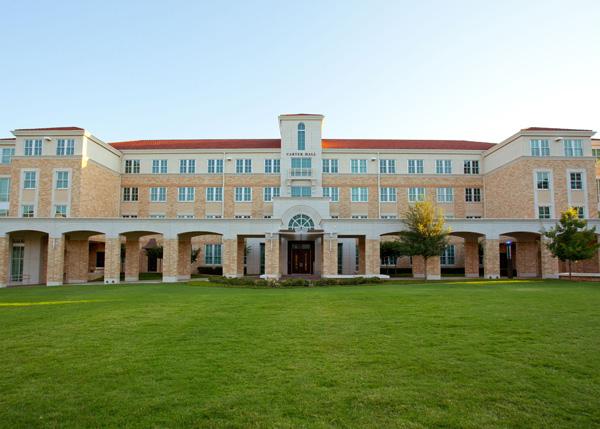When sirens sounded across campus this month urging people to take shelter because “an armed person” was on campus, some students said they were unsure of where to go.
Although fire drills are held every semester in campus residence halls, the university doesn’t have a drill for what to do in the event of an active shooter. Instead, voluntary training about an active shooter is offered for faculty staff and students.
The November lockdown occurred after a confrontation between Roadrunner Charter shuttle drivers. The alert warned people to seek shelter. At the same time, however, TCU officials were triggering automatic locks that kept some from entering buildings or rooms.
Others, who were inside said they didn’t always know where to go.
Amelia Davis, a sophomore nursing major, said she was in the Mary Couts Burnett Library when the alarms sounded.
“There was a group of about 15 of us stranded,” Davis said. “We had no idea where to go, especially because nothing like this had ever happened before.”
Davis said they were left without a designated shelter until a custodian unlocked the conference room for them where they hid for around an hour.
Garrett Gomez, a Spanish and Hispanic studies major and senior residential assistant in Samuelson Hall, wrote a post on Facebook that he had not been trained for this type of an alert.
“As an R.A. on campus I’m in charge of my residents and their safety,” Gomez wrote. “During our training, we are given a manual called Important Things, which contains all the necessary information during an emergency. Or at least, it is supposed to.”
Gomez wrote he was confused about what to do in this situation because he could not find any advice on how to handle an active shooter on campus.
“R.A.’s need to go through active shooter training, as do faculty and staff,” Gomez wrote. “I want to feel safe at school. Nothing is normal about an active shooter alert.”
Craig Allen, director of housing & residence life, said RA’s are instructed to shelter in place should there be an active shooter on campus, but they are not responsible for ensuring everyone’s safety.
“Each and every one of us on campus is responsible for our own safety in these cases,” Allen said. “There are many types of incidents – fire alarms, severe weather, facilities power outages, alcohol incidents, suicidal ideation and more, where RA’s play a central and critical role as first responders. But RA’s do not confront armed persons.”
After any critical incident, RA’s and representatives for housing and residence life meet to debrief the situation. In this case, there is little that could have been done differently to better the situation, Allen said.
“I know that RA’s sent text messages to their residents and answered calls from students to help them,” Allen said. “We know that more education for residents about what to do in this type of incident can be helpful and, as always, we will review with our RA’s to be sure they knew what to do.”
Assistant Vice Chancellor for Public Safety Adrian Andrews said the university plans to continue educating students, faculty and staff about protective measures located in and around the TCU campus.
“The TCU campus is one of only a few in the nation that has the capability to remotely lock classrooms and buildings,” Andrews said. “We are currently engaged in assessing all buildings on campus for safety and security measures.”
Andrews said although TCU cannot prevent everything, the university tries to ensure students feel prepared for this kind of situation.







